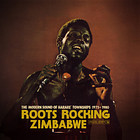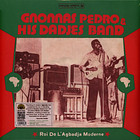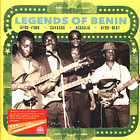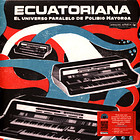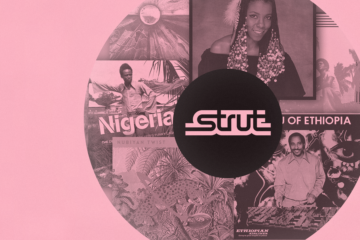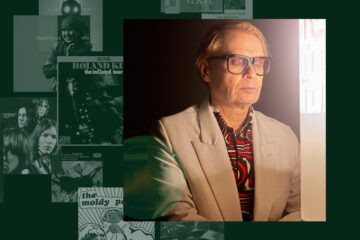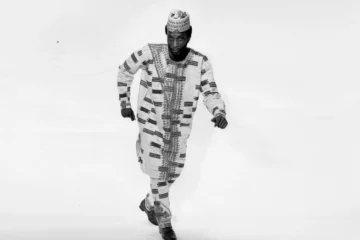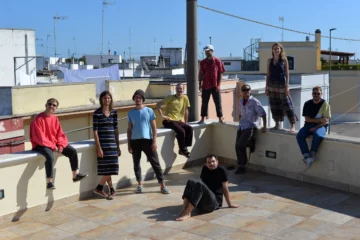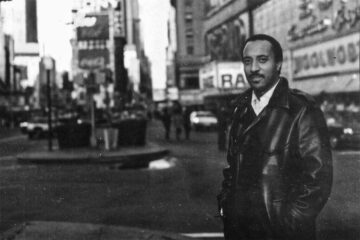»Music is life,« reads the status on his WhatsApp profile. Samy Ben Redjeb, known to everyone as Samy, who has been running the Analogue Africa label for over 20 years, lives and breathes music. If there’s anyone for whom this saying is definitely not an empty phrase, it’s Samy: »Hey, what’s up, how are you?«
Samy is in Mexico City at this moment. Before that he was in Colombia, Brazil and so on. »For variety«, says Samy, adding that he always spends the winter in South America, then visits his second home in Frankfurt and spends the rest of the year traveling around Africa. To track down musicians whose records from the 1960s to the 1980s he wants to release on his Analogue Africa label.
Samy has been doing this since 2004 when he made his first record without knowing how it actually works. Searching for licenses. Track down musicians. Mastering songs. At this point, Samy just likes music. And travels after it. Asking around. Having fun. At some point he comes across »The Green Arrows«, superstars from Zimbabwe in the 1970s. A band that no white European had ever heard of, they founded the Analog Africa Expedition.
Each record a friendship
It is one that takes Samy across the continent. Togo, Benin, Congo, Angola, Ghana, Senegal, Burkina Faso. The list of countries where he has scoured warehouses, garages and backyards over the years to dig up old records is even longer. Most of these trips have resulted in compilations – lavishly assembled, with photos and the stories of the musicians, many of whom last stepped into a microphone half a century ago.
»We live in a world where you always have to say everything.«
Samy Ben Redjeb
»Every record is a friendship«” says Samy, »I don’t just want to bring out the music, but the whole story.« So there’s always a lot to look at on his records. And even more to read. Because Samy may publish music, but he’s actually something like a contemporary historian, talking to quasi-forgotten musicians about their past. Because he likes their records, of course. But mostly because he is interested in the story behind them.
Some would understand. Others might recognize it as cultural appropriation or the downfall of everything. Samy has no sympathy for that. Also because the »cultural what’s it called again?« always comes from those who have nothing to do with the music. »But the local musicians always tell me that it was their dream back then to hear their music here and there and all over the world.«
The matter of money
Analog Africa does just that. To show old music in a new light. The label is also an opportunity for second careers on bigger stages. But at least for late payment. Nowadays, says Samy, he has to say this because »we live in a world where you always have to say everything«, but the payment is always fair. The basis for the paycheck is: How many records can be sold? In this way, 14,000 Euros can end up in a musician’s pocket that would never have been opened without the label’s work.
»I always thought that people would see that. Well, the work behind the records also shows that I’m not exploiting or ripping off anyone, says Samy. »I mean, you don’t go to the supermarket and buy something and then shout at the cashier: ‘Hey, I bought bananas and a yogurt. ‘ But, well, if that’s what people want, then let them hear it.«
Samy sagt es zwar nicht, aber merken kann man es schon: Er ist einer, der lieber tut, als darüber zu sprechen. So erscheinen vier bis fünf Compilations pro Jahr. Nicht mit den »super raren Sachen«, sondern mit »Hits«, wie Samy sagt. Schließlich gebe es davon noch viele. Die Musik sei auch schon gefunden. Nur die Geschichte, die müsse er noch erzählen.


